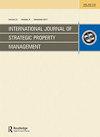SUSTAINABILITY IN PROPERTY TAXATION: AN APPLICATION FOR REVENUE STABILITY AND FAIRNESS PERSPECTIVES, THE CITY OF BUFFALO, NY
IF 1.7
4区 管理学
Q3 MANAGEMENT
International Journal of Strategic Property Management
Pub Date : 2023-12-21
DOI:10.3846/ijspm.2023.20564
引用次数: 0
Abstract
The scholarly modeling of property tax has always posed a challenge, with two primary concerns to be addressed: first, maintaining sustainability in the collection, which is primarily a concern for local governments; and second, ensuring fair distribution, which is of greater concern for citizens. In today’s practices, assessment-based property tax increases unmatched expenses in bubble economies. There is a substitution problem in rapid falls, the tendency to not decrease the assessments gives way to black holes and opens the door to ghost cities. This paper proposes alternative approaches, aside from market/land value or last sold price, aimed at improving sustainability and fairness rates. The dataset examined is based on 93.7K records and 88 attributes for assessed value of properties within the City of Buffalo, the United States of America. Since the label (Total Value) is a numerical and continuous value, regression models are selected, where ensemble machine learning methods categorically work well with larger datasets, combined with weak learners, like decision trees. Stacked Ensemble led the least error for regression with 0.98 R2, followed by Gradient Boosting. Results show a 79% dominance of uncontrollable attributes, such as Land Value, Neighborhood, and Sale (last sold) Price, compared to controllable attributes, such as Total Living Area, Construction Grade, Second Story Area, and many others. This article suggests having a more balanced split between uncontrollable and controllable attributes would contribute to both sustainability and fair distribution.财产税的可持续性:收入稳定性和公平性视角的应用,纽约州水牛城
财产税的学术建模一直是一个挑战,主要有两个问题需要解决:第一,保持征收的可持续性,这主要是地方政府关心的问题;第二,确保公平分配,这是更多公民关心的问题。在当今的实践中,基于评估的财产税增加了泡沫经济中无法比拟的支出。在快速下降过程中会出现替代问题,不减少评估的倾向会导致黑洞,为鬼城打开大门。本文提出了除市场/土地价值或最后出售价格之外的其他方法,旨在提高可持续性和公平率。本文研究的数据集基于美国布法罗市 93.7K 条记录和 88 个房产评估价值属性。由于标签(总价值)是一个连续的数值,因此选择了回归模型,其中集合机器学习方法与决策树等弱学习器相结合,在处理大型数据集时效果显著。在回归模型中,堆叠集合的误差最小,R2 为 0.98,其次是梯度提升。结果显示,与居住总面积、建筑等级、二层面积等可控属性相比,土地价值、邻里关系和销售(最后售出)价格等不可控属性占 79% 的优势。本文认为,在不可控属性和可控属性之间进行更均衡的分配,将有助于实现可持续性和公平分配。
本文章由计算机程序翻译,如有差异,请以英文原文为准。
求助全文
约1分钟内获得全文
求助全文
来源期刊
CiteScore
4.00
自引率
18.50%
发文量
23
审稿时长
15 weeks
期刊介绍:
International Journal of Strategic Property Management is a peer-reviewed, interdisciplinary journal which publishes original research papers. The journal provides a forum for discussion and debate relating to all areas of strategic property management. Topics include, but are not limited to, the following: asset management, facilities management, property policy, budgeting and financial controls, enhancing residential property value, marketing and leasing, risk management, real estate valuation and investment, innovations in residential management, housing finance, sustainability and housing development, applications, etc.

 求助内容:
求助内容: 应助结果提醒方式:
应助结果提醒方式:


